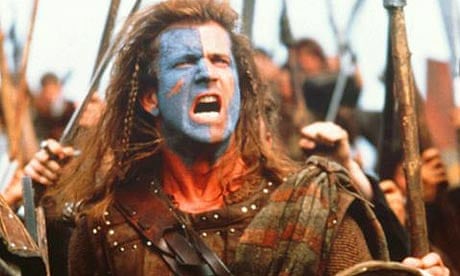When Wolf Hall won last year's Booker prize some commentators suggested that the term "historical fiction" was itself becoming a thing of the past. So many novels these days are set prior to the author's lifetime that to label a novel "historical" is almost as meaningless as to call it "literary". Eight of the last 10 Booker prize shortlists have included a novel set in the 19th century, and with the inclusion of David Mitchell's The Thousand Autumns of Jacob de Zoet in this year's longlist, there is a better than fair chance that 2010 will be no different. However, one issue still divides historical fiction and contemporary: the matter of historical accuracy.
Historical accuracy is like quicksand. Stay too long in the same place and it will suck you down and there will be no movement, no dynamism to the story. Too much attention to factual detail is undoubtedly an impediment to literary art. Adam Foulds's The Quickening Maze is described on the Booker prize website as "historically accurate but beautifully imagined", as if "historically accurate" implied a literary problem. In some respects it does. Ask a historical author: how do you stop that facts getting in the way of the story? And the novelist, driven by his or her imagination, will offer a wealth of answers. The historian will assure you that the facts are the story.
Ignoring the mythical holy grail of historical accuracy is even more problematic. By far the most commonly cited book in this respect is The Da Vinci Code, even though it is not a historical novel at all. The historical context of the plot is what excites criticism in this respect. The same could be said of many historical films. My particular favourite historical error appears at the end of Braveheart, where it is suggested that the future Edward III (born in 1312) was the product of a union between the Scottish rebel William Wallace (executed in London in 1305) and Princess Isabella of France, who was nine at the time of Wallace's death. It would be funny – if I had not met so many people who believed it.
The path a historical novelist has to tread is clearly beset by dangers. There is an inherent tension between trying to do something new and something old at the same time. One cannot have medieval characters using correct period language because no one would find the speech readable. Similarly, an accurate portrayal of a world in which most dutiful and conscientious fathers will regularly beat their sons is likely to alienate readers. If one was to write a novel about the real woman baptised in Dartmouth in 1737 as Constant Sex, it would have all sorts of double entendres and more basic entendres than she herself would have understood (the word "sex" having little or no connection with the sexual act in 1737). In describing the interactions of real individuals, one has to invent reactions or the character is just two-dimensional, and never develops. In creating good historical fiction, it is essential to tell lies.
A clear distinction needs to be made here between telling lies and making mistakes. A lie is intentional and purposeful; a mistake is accidental and sometimes unforgivable. One highly acclaimed and commercially successful recent novel had on page three the statement that there were "no priests within a three-day ride". Taking into consideration the time of year and the location of this statement, I calculated there were between five and eight thousand priests within "a three-day ride" in that year. I could not carry on reading when I realised that author's vision of 14th-century England was so far from my own. One can make mistakes and not lose the reader: Ken Follett's The Pillars of the Earth has many people of low status eating breakfast regularly, even though in the 12th century very few people would have had anything to eat before their main meal of the day (and those who did were high-status individuals). Yet Follett's book is so well thought through in other respects that the breakfast issue becomes a minor quibble.
The spectrum of historical fiction is therefore not as simple as "accurate = good" and "inaccurate = bad". It depends on whether the inaccuracies are constructive lies or accidental mistakes. Hilary Mantel has commented on how the early years of Cromwell are so poorly documented that she was free to make up elements. Such invention could be called educated guesswork, but it is still guesswork, it is still lying. Going back a few years, James Clavell's Shogun brilliantly lied about the closeness of the English pilot Blackthorne to the future Shogun, Toranaga, to illustrate the drama of political events in Japan around 1600. In reality, the real English pilot William Adams was never as close to the real Shogun (Tokugawa Ieyasu). As with Wolf Hall, the lies added to the story, they did not detract from it.
Some lies go too far and alienate the reader. Some are too obvious. But some lying is necessary, and to get away with it, one has to be both subtle and convincing. Shakespeare is a good rule of thumb in this respect. He knowingly conflated historical characters in historical plays. He deliberately misnamed others. Sometimes he gave them attributes that were the very opposite of their real characters. And yet he made the drama of their lives meaningful for us, so that we remember who they are. No one is likely ever to accuse Shakespeare of historical accuracy, but who has written a greater work of historical fiction about the later Plantagenets?

Comments (…)
Sign in or create your Guardian account to join the discussion